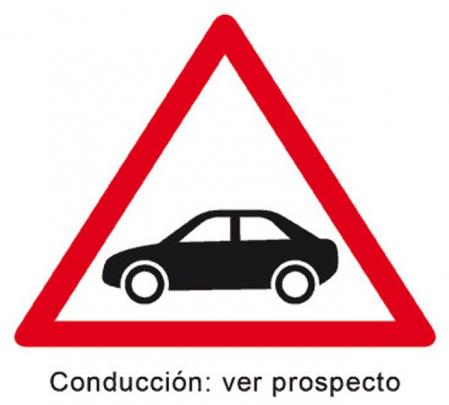Recreational drugs not only pose a risk to a person’s health, but they are also a significant risk to both the user and others if that user gets behind the wheel of a vehicle. This is the reason why drug controls have been stepped up in recent years.
However, the problem does not only come from recreational drug users, but also often those on prescribed medication, and even some conditions and illnesses, the reason why the medical examination is so important in Spain, and the reason why you must be truthful with your doctor about your condition, seeking professional advice if you hope to drive. The doctor will determine the renewal period based on your individual condition and prognosis.
When it comes to illnesses, the DGT Traffic Department has established nine categories. The first category refers to respiratory illnesses, which range from the so-called ‘sleep apnoea’, which can reduce the renewal of your licence to three years. At the other extreme we have ‘permanent dyspnoea at rest ‘, which directly prohibits its renewal.
Another category is related to neurological diseases. In this case, recent loss of consciousness will not allow you to renew your licence. As for digestive diseases, it also includes kidney transplants, which require a minimum of 6 months from the date of the operation to drive again.
Another of the diseases that are considered is epilepsy, which can limit the renewal date of your permit. Next on the list are vascular diseases. In this case, a dissection will limit the renewal to a maximum of 2 years (provided that more than 6 months have passed since the operation).
There are also restrictions related to oncological diseases or onomatological disorders, since to renew the licence, it is essential that the person does not present symptoms or is not under treatment.
There is also a list of psychiatric conditions that may make driving impossible, such as dementia, anxiety disorders, ADHD, depression, sleep disorders, OCD, or addiction to alcohol and other substances.
In addition, there are certain endocrine conditions that can prevent obtaining the permit, such as hypothyroidism or diabetes treated with insulin. Likewise, cardiac problems such as arrhythmias, a history of heart attacks or the use of devices such as pacemakers and defibrillators are included.
Finally, degenerative diseases such as Alzheimer’s, ALS, osteoporosis, Parkinson’s, arthritis, or muscular dystrophy are also among the causes of disqualification.
As for medication, one indicator is the presence of a warning triangle containing a pictogram of a car printed on the box. But, in any event, you should always check with the doctor or pharmacist before driving, as it is common for seemingly innocent people to fail the drugs test at the roadside.
It is crucial you are truthful with the doctors as the reason behind these restrictions is not to make your life more difficult, but rather to make it safer for everyone through closer monitoring.




Discover more from N332.es - Driving In Spain
Subscribe to get the latest posts sent to your email.

You must be logged in to post a comment.